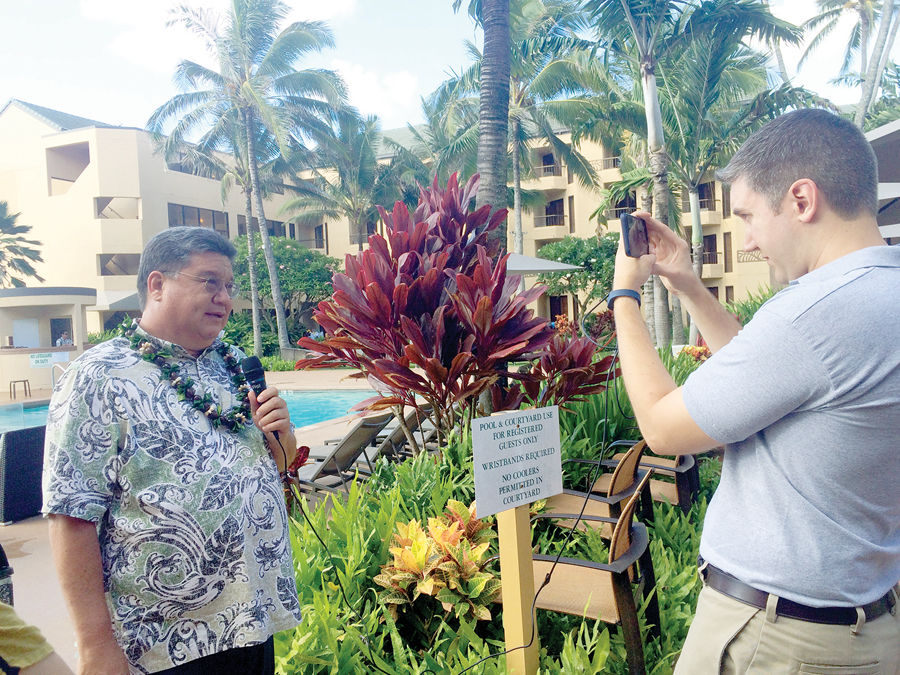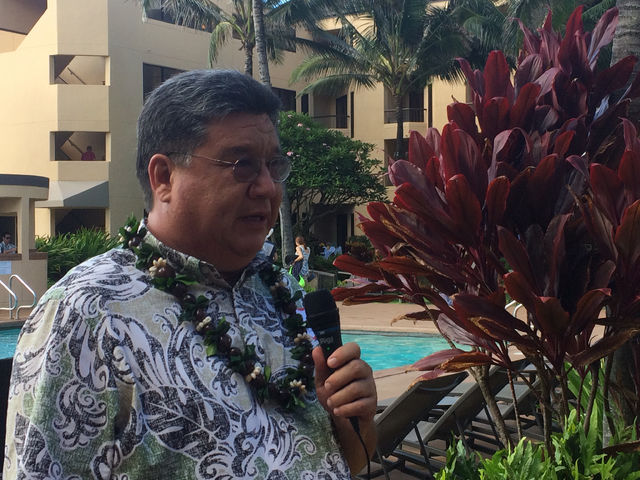KAPAA — About one third of Kauai’s population has to leave the island for hospital procedures, according to Barbara Kim Stanton, AARP Hawaii State director.
Many of those people have caregivers who accompany them and who are responsible for the follow-up duties upon release from the hospital.
Until now, there’s been no guarantee those primary caregivers return home with directions on how to care for their loved one.
With the 2016 Hawaii passage of the Caregiver Advise, Record, Enable (CARE) Act, however, hospitals are required to take down information from a caregiver contact and instruct that person in the medical tasks needed to be performed at home.
“Even for those who just have to visit one of the hospitals on the island, sometimes it’s a long ways to go,” Stanton said. “And so now, with the CARE Act, the hospitals have to ask, ‘Do you know how to change a bandage?’ or ‘Do you know how to give an injection?’”
The passage of the CARE Act, which will go into effect in July 2017, was celebrated Wednesday morning at the Courtyard Marriott in Kapaa, in an event hosted by AARP. Senate President Ron Kouchi, and Reps. Dee Morikawa, Jimmy Tokioka, and Derek Kawakami were honored for their work in passing the bill.
John David Stem was also present in the crowdof about 50 people. Stem, who lives on the same property as his mother and caregiver, Janice Bond, was one of the driving forces behind AARP’s drafting of the CARE Act.
In 2012, Bond found Stem, 49 at the time, unconscious in his home. She took him to Wilcox Medical Center, where he was diagnosed with necrotizing fasciitis, a bacterial infection that destroys tissues under the skin. Eventually, he was transferred to Straub Medical Center on Oahu.
“He was in a coma for six days and he was at Straub for two months,” Bond said. “They couldn’t tell me anything at the hospital because of HIPAA.”
HIPAA is the Health Insurance Portability and Accountability Act. It keeps medical information confidential and because Stem was an adult, Bond wasn’t given any information on his condition.
“Janice’s son, his story about being in a coma for six days, it’s one of the reasons why we do what we do and we’re glad you pulled through,” Stanton said in a speech at Wednesday’s celebration breakfast.
Stanton said that when caregivers are untrained, it creates increased stress for both the patient and the caregiver, as well as decreases the overall quality of care for the patient.
“Now, because of insurance and things like that, people are getting released from the hospital sicker and quicker,” Stanton said. “Some staff at some hospitals are already giving this information to caregivers, but what this law does is makes it consistent across the board.”






